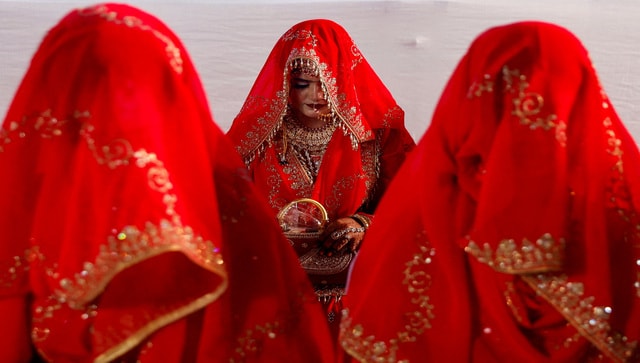Uttarakhand chief minister Pushkar Singh Dhami tabled the Uniform Civil Code (UCC) Bill today (6 February) during the special four-day session of the Assembly. This comes after the state Cabinet cleared the final draft of the UCC which proposes uniform civil laws for all communities in Uttarakhand on Sunday.
If the Bill is passed in the Assembly, gets the assent of the governor, and becomes law, Uttarakhand will become the first state after Independence to adopt the UCC.
How was the Uttarakhand UCC draft prepared? What does the Bill entail? Let’s take a closer look.
How UCC in Uttarakhand came to be
The UCC is a common set of laws governing personal matters such as marriage, divorce, inheritance, and adoption for people of all religions.
The Uniform Civil Code was a major poll promise of the Bharatiya Janata Party (BJP) ahead of the Uttarakhand Assembly elections in 2022.
After the saffron party came to power in the state, the Pushkar Singh Dhami-led Uttarakhand government announced on 27 May 2022 that a five-member panel headed by former Supreme Court Judge Ranjana Prakash Desai would submit a report with a draft of the Bill.
The UCC Bill comes from Article 44 of the Indian Constitution which states: “The State shall endeavour to secure for the citizens a uniform civil code throughout the territory of India.”
As per an Indian Express report, this committee was tasked with studying regulating personal civil matters such as marriage, divorce, live-in relationships, property rights, inheritance, adoption, maintenance, succession, custody and guardianship for residents of Uttarakhand.
The panel was supposed to submit a report on the UCC in November 2022. However, this deadline was extended several times, despite CM Dhami declaring last June that the committee had finished its work.
On 2 February, the drafting panel presented its final draft report to CM Dhami. While the panel was supposed to submit its report late last year, it was decided at the end moment to translate the draft, originally written in English, into Hindi to “preserve the essence of Dev Bhoomi”, according to Indian Express.
This 749-page report contains recommendations received from the public.
Public meetings and more
The committee reportedly got more than 2.5 lakh suggestions from the public through letters, registered posts, emails, and written proposals on its online portal. The panel members also conducted 38 public meetings across Uttarakhand and held direct public interactions with the state residents.
“Most of the written suggestions are one-sided, but the two-way communication in public interactions generated more meaningful suggestions,” a source told Indian Express.
Before formulating the report, the expert panel examined laws in other countries on civil matters, along with studying multiple personal and religious laws, and religious customs in India. It also took into account cases handled by various commissions associated with civil laws, the English daily reported.
The panel met all statutory commissions. The members of the expert committee met over 50 times in New Delhi to deliberate on the issues and prepare the draft, as per Indian Express report.
The committee met Hindu religious leaders in Haridwar and all the Hindu akhadas. It also carried out meetings in Muslim-dominated areas such as Kaliyar Sharif, Ramnagar, Haldwani, Kashipur, Mangalore and Vikas Nagar, the report added.
Moreover, 10 political parties active in the state were also invited to seek their recommendations. Of these, seven participated with the Congress, the AAP and the CPI staying away.
Architects of the Uttarakhand UCC draft
Besides Justice (retired) Desai, the other members of the panel included Justice (retired) Permod Kohli, Manu Gaur, Shatrughan Singh and Dr Surekha Dangwal.
The panel was divided into two sub-committees. One sub-panel consisted of Justice (retired) Kohli, Gaur, and Singh who drafted the UCC code. The second one, comprising Gaur, Singh, and Dr Dangwal, was responsible for consulting stakeholders.
What the Uttarakhand UCC may entail
The UCC draft Bill is 182 pages long with over 400 sections. Under the Bill, the marriageable age for girls is kept 18 years and the boys 21 years.
The UCC Bill also mandates the registration of live-in relationships. If someone fails to submit the declaration of a live-in relationship, or provides false information, they could land in jail for three months, pay a fine of Rs 25,000, or both, as per News18.
The adoption process has been reportedly simplified, with Muslim women also being allowed to adopt. Women would have equal inheritance rights on their parents’ property.
The practices of polygamy, halala and iddat are also expected to be banned under the UCC.
The proposed Bill also removes distinctions between legitimate and illegitimate children, and ensures equal treatment for adopted and biological children, reported NDTV.
Notably, about 3 per cent tribal population of Uttarakhand is excluded from the law.
With inputs from agencies
Link to article –
Uniform Civil Code Bill tabled in Uttarakhand Assembly: How was the draft prepared?





